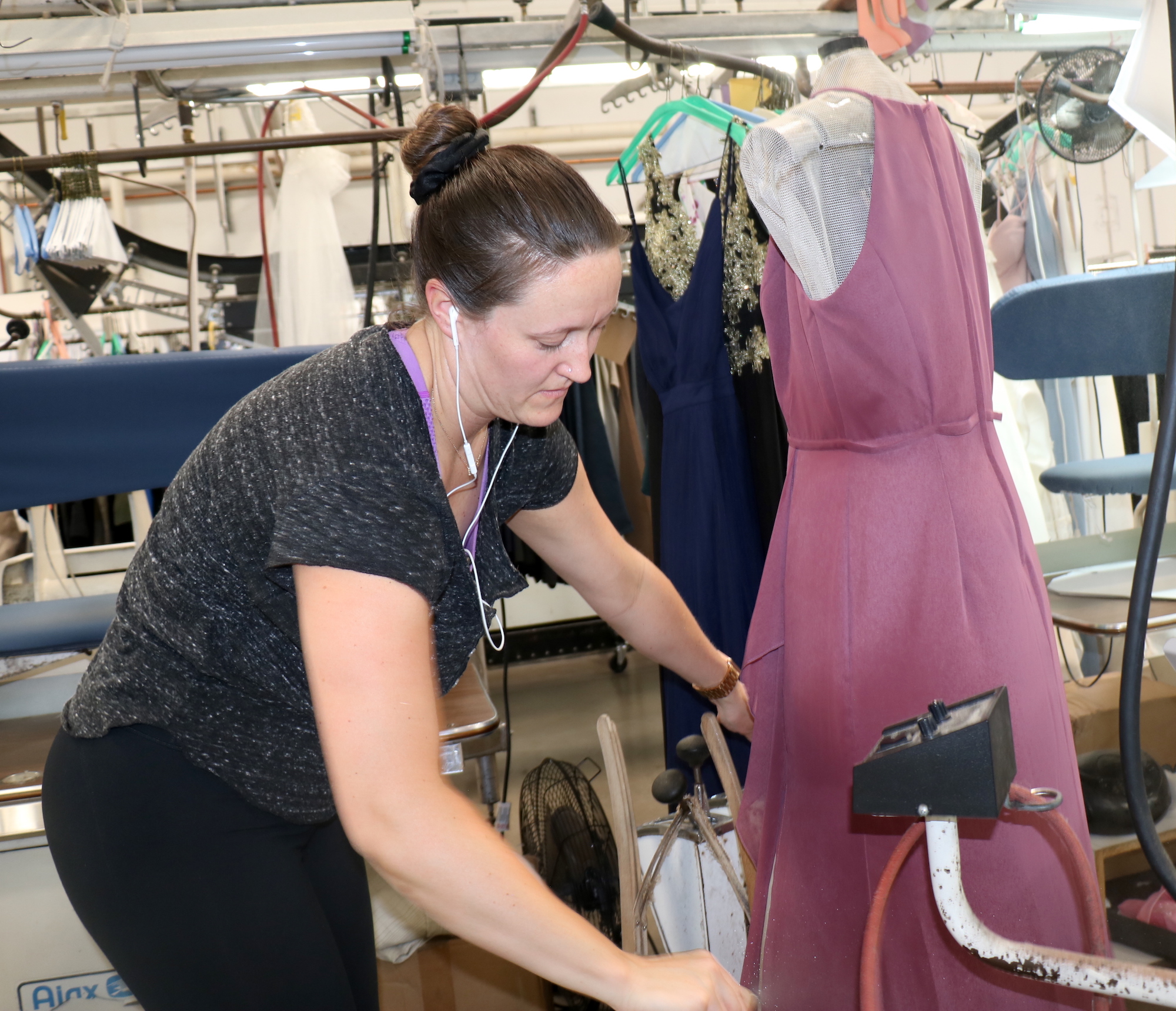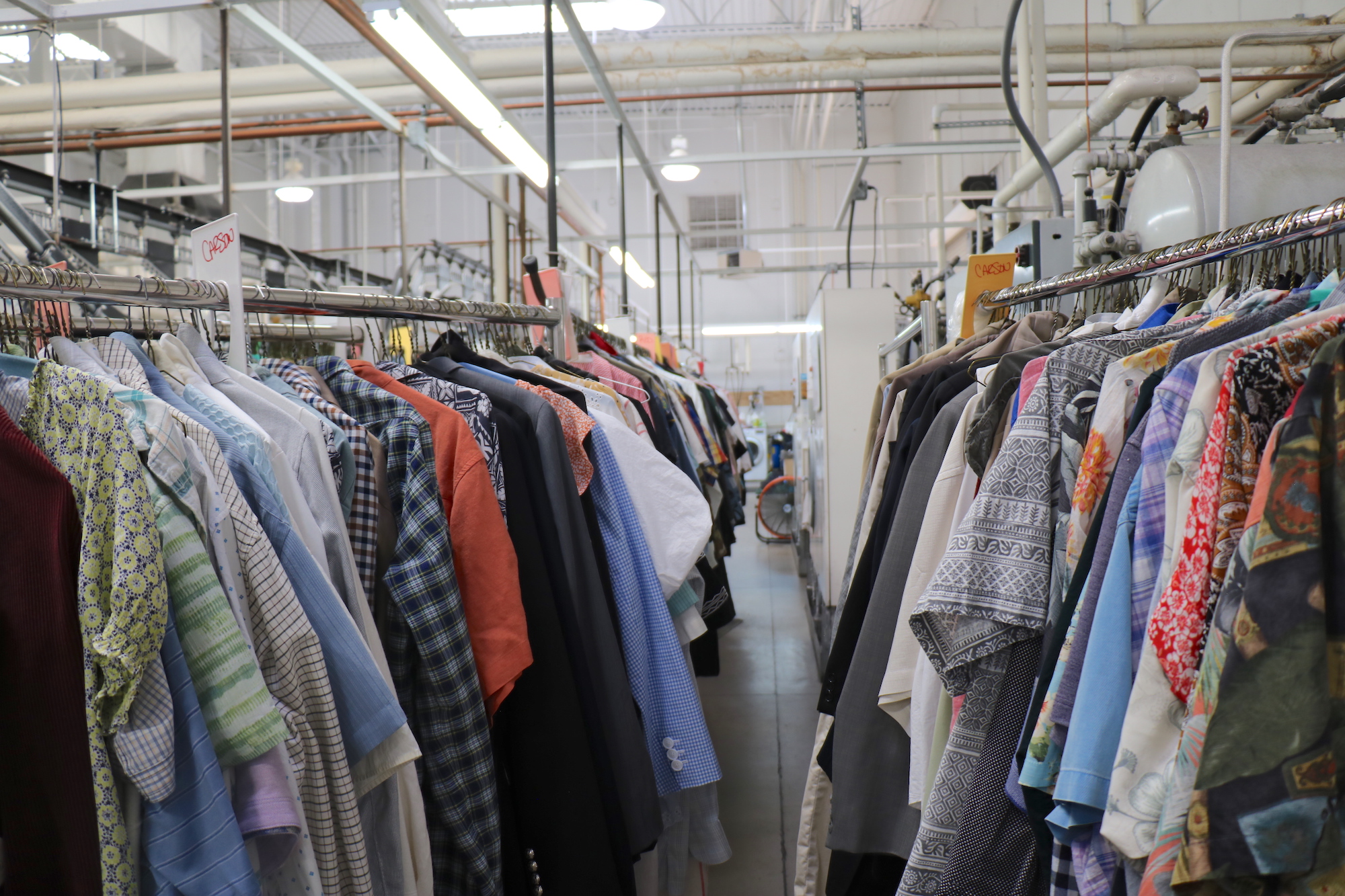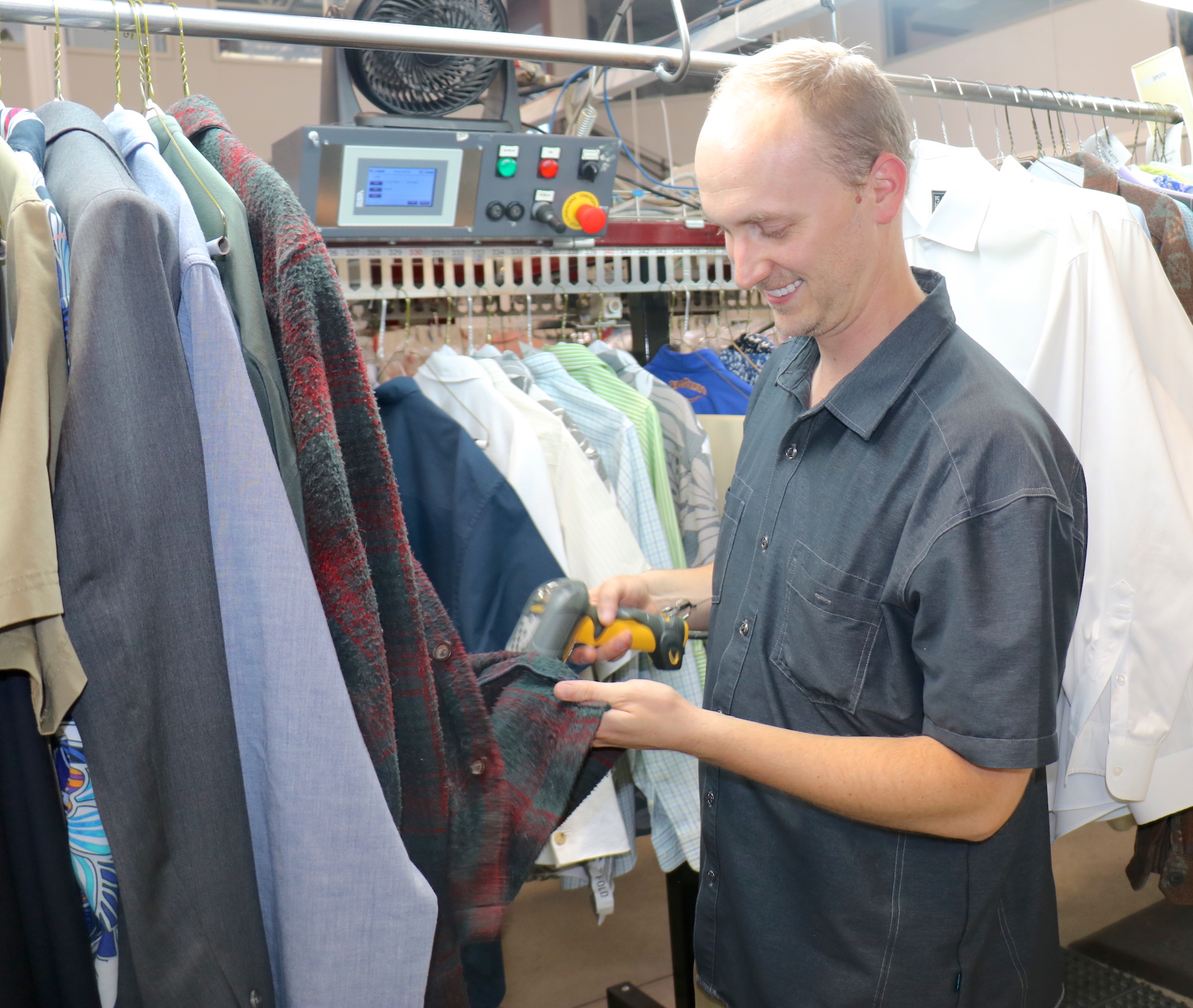David Leid, general manager of restoration at Bobby Page’s Dry Cleaners, stands inside the company’s flagship facility located at 1090 Sandhill Road in South Reno on June 18, 2021.
Photo by Kaleb Roedel.
 Bobby Page’s employee Daria Leid puts the finishing touches on a dress during her shift on June 18, 2021. Photo: Kaleb M. Roedel / NNBW
Bobby Page’s employee Daria Leid puts the finishing touches on a dress during her shift on June 18, 2021. Photo: Kaleb M. Roedel / NNBW
 Thousands of clothing items needing to be cleaned hang on racks at Bobby Page’s Dry Cleaners’ 12,000-square-foot facility in South Reno on June 18, 2021. Photo: Kaleb M. Roedel / NNBW
Thousands of clothing items needing to be cleaned hang on racks at Bobby Page’s Dry Cleaners’ 12,000-square-foot facility in South Reno on June 18, 2021. Photo: Kaleb M. Roedel / NNBW
 Bobby Page’s employee Eric Jacobsen scans the tags of clothing items that have yet to be cleaned at Bobby Page’s on June 18, 2021. Photo: Kaleb M. Roedel / NNBW
Bobby Page’s employee Eric Jacobsen scans the tags of clothing items that have yet to be cleaned at Bobby Page’s on June 18, 2021. Photo: Kaleb M. Roedel / NNBW